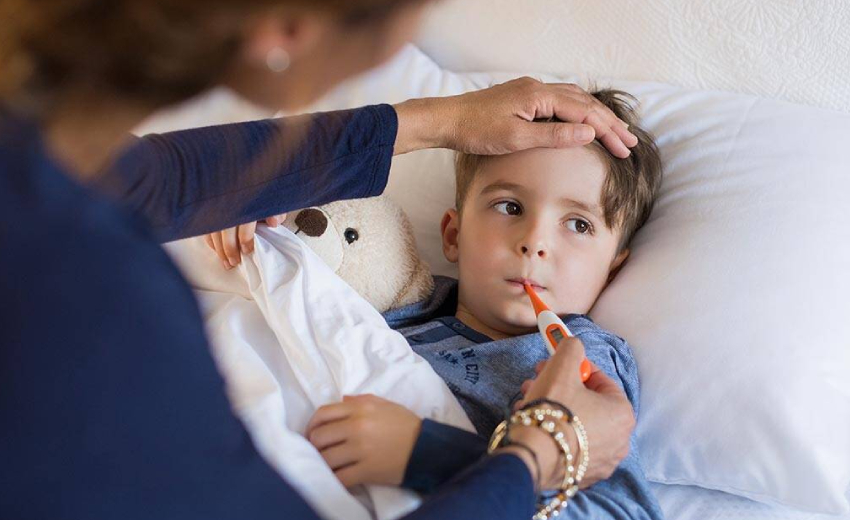
Taking care of a sick child is not as simple as it appears. To get through this difficult moment, your youngster will require some care and love. Sudden changes in weather can cause your child to become unwell more frequently, lowering their immune power to the point where they are often the first in line when illness strikes – even more so if they are too young or unable to communicate adequately!
What should you do if your child is sick? If your child is too young, he will most likely have no idea what is going on or why he is feeling so down. Constant pain and exhaustion can irritate him, but don’t worry! There are a few parenting tips you can use to ensure that your child’s comfort is maintained even while they are sick.
1. Maintain a Calm Environment:
Any exterior interruptions or diversions might be highly unsettling for your child during their sickness, when they may want inner stillness. Keep them away from disturbances entering their room, such as an open window if outside noises are too loud, and instead allow him to relax in silence. If anything is distracting your sick child at all times while he recovers with this new found time on his hands after being sick for so long, turn off that noise if you have it within sight! There won’t be many more chances to spend some quiet time alone without worry before resuming life in the midst of all those people who will simply drive themselves insane trying to sort things out.
2. Use a Humidifier:
Using a humidifier to cure those bothersome winter colds can be very effective. Choose one that is specifically created with children in mind, and follow the manufacturer’s recommendations for changing out water tanks, which may differ from unit to unit.
When it comes to caring for a sick newborn or even a toddler, there is always an additional sense of obligation to consider. Caregivers are always giving it their all and need all the energy they can get to keep up with this fast-paced lifestyle. Making easy-to-digest foods like pureed meal items like soup is one way caregivers keep proper nutrition levels when caring for sick children.
Drinking A Lot Of Water:
A child’s health is extremely important and should not be overlooked. While being hydrated is crucial when recuperating from an illness, don’t overlook the other crucial items that might help you feel better, such as juice or ginger ale.
Follow these guidelines to be healthy: –
Drink 8 ounces of water every hour if possible.
- Incorporate some fruit juices, such as apple or grape flavoured sparkling water, to provide some taste (very light on sugar).
Dr. Nirmala Acharya’s article “Treating Your Child at Home” addresses several home remedies for treating a child’s illness and what parents should do to ensure the sickness does not worsen or spread to other family members.
Continue to give them plenty of drinks to keep them hydrated while you attend to their other needs; listen carefully if they mention any food allergies, and instead of pushing something down their throat that could make things worse, consider suggesting some options when it’s time to cook supper. While it may be tempting to simply let a cold run its course, keep an eye on how severe symptoms may develop into something more dangerous. Fever spikes might develop into a full-blown fever.
Keep An Irritant-free Environment:
If you have a sick child at home, keep your cleaning and dusting to a minimum. Wipe the floors with wet cloths or other non-chemical cleansers to ensure that allergens such as pollen and mould spores from houseplants are not present in the air. Asthma patients should avoid smoking indoors because it irritates their respiratory problems. If you have someone sick in the house, avoid using strong smelling things like scented candles because they might aggravate eye problems, especially if breathed by individuals who already have allergies! Don’t forget about pets, who may have tracked viruses into carpets with their fur on their paws before licking.
2.. Take Precautions When Taking Medication
If your child has a fever or a common infection, you can use a medicine that you are familiar with. However, double-check the dosage and, if necessary, see your doctor. At all costs, aspirin must be kept away from children. Cough syrups are also not suggested for children under the age of four. Even ibuprofen should not be given to a baby under the age of 25 weeks.
Take the required actions to treat your child as soon as you notice he isn’t feeling well. If he has a fever and other symptoms such as sweating or pain, seek medical help immediately because his infection is likely to worsen if left untreated.
When talking with doctors, keep these pointers in mind:
Before going in,
- gather any reminders of sickness they may have experienced, and
- learn what medications can help them feel better.
- Take into account their age;
- make sure there aren’t too many people about;
- and, most significantly,
- have faith in yourselves as parents!


